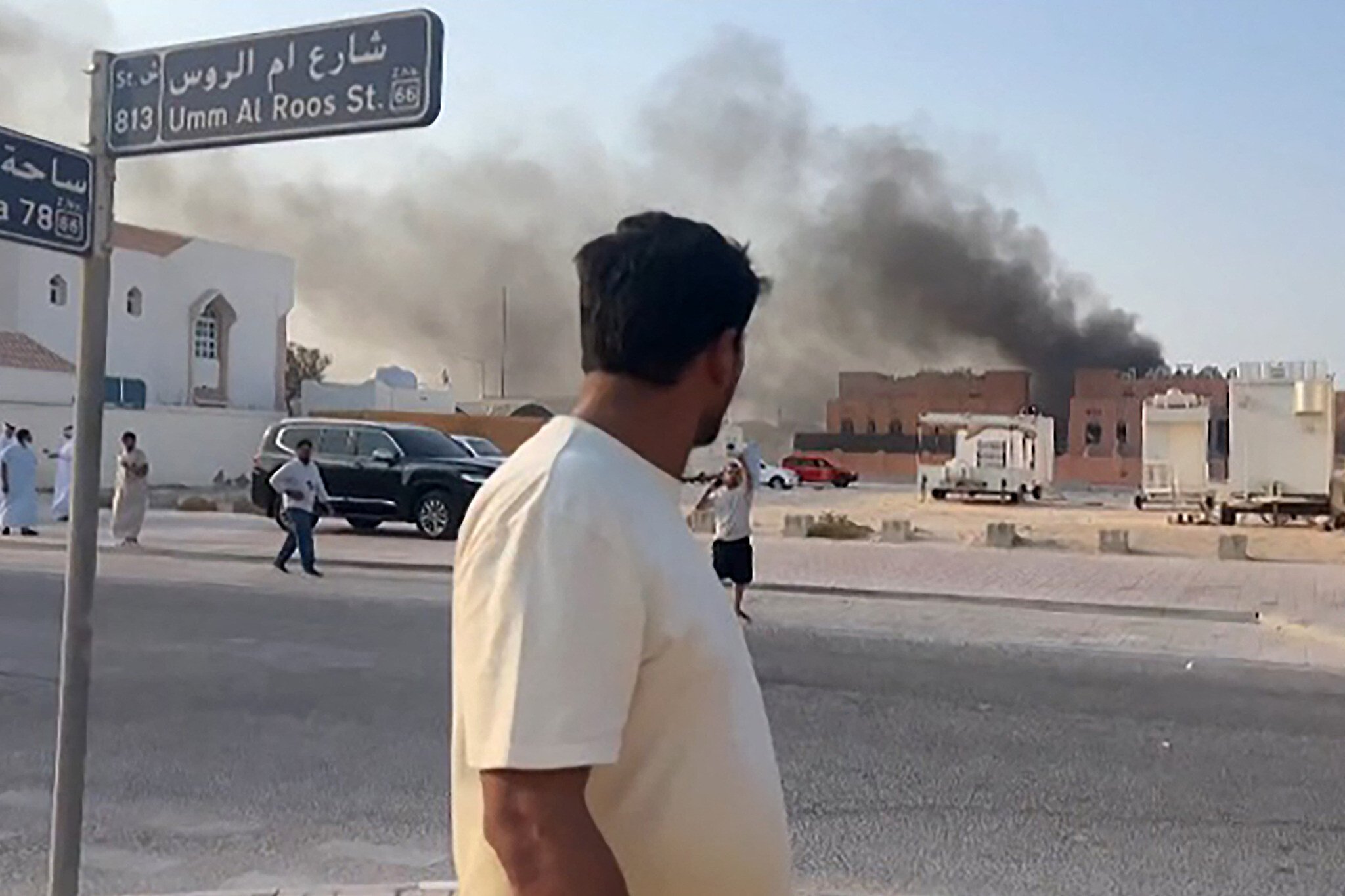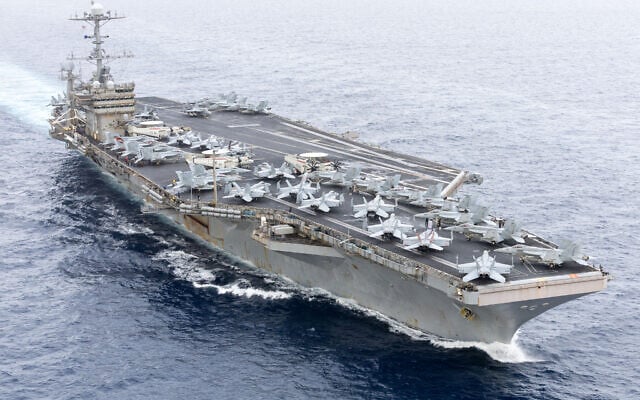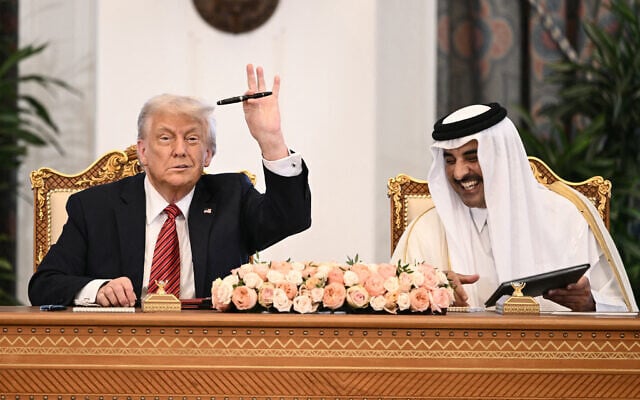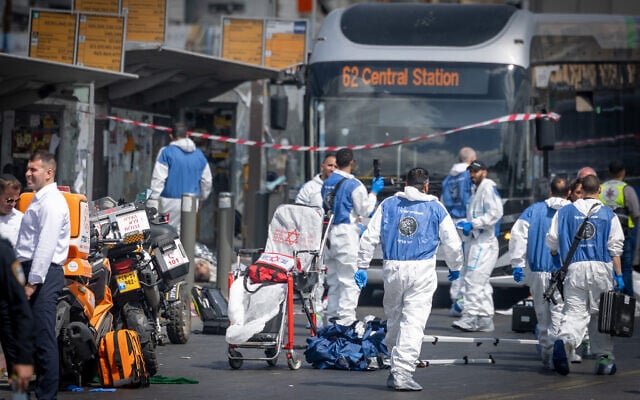


Three days after Israel’s strike against senior Hamas leaders in Doha on Tuesday, the dust is only just beginning to settle, with Jerusalem increasingly pessimistic that its attack was successful.
What has been perfectly plain to see, however, is the outpouring of denunciations by the international community against Israel over the attack, and allegations that the attack flies in the face of the laws of war.
Condemnations by numerous countries, including close Israeli allies, focused on what was alleged to be Israel’s violation of Qatari sovereignty, “violations of international law,” and concerns that the strike endangered negotiations with Hamas to bring the nearly two-year-long war in Gaza to an end.
But what exactly are the legal concerns regarding international law over the Israeli attack?
Legitimate targets, questionable location
Israel is currently engaged in an armed conflict with the Hamas terror and paramilitary organization.
The officials targeted by Israel in Tuesday’s strike are believed to have included all of the terror group’s top leadership outside Gaza, including the leader of Hamas’s Gaza units, Khalil al-Hayya; Zaher Jabarin, who leads Hamas in the West Bank; Muhammad Darwish, the head of Hamas’s Shura Council; Nizar Awadallah; and Khaled Mashaal, the head of Hamas abroad.
Targeting Hamas leaders who are part of the chain of command and who are involved in military decision-making and operational matters — including those Israel sought to eliminate on Tuesday — would therefore broadly be considered to be lawful under the laws of armed conflict.
But conducting such strikes in a country with which Israel is not in a state of armed conflict, like Qatar, raises considerable legal issues.
Under Article 51 of the UN Charter, states are afforded the right to self-defense.
The International Court of Justice, an organ of the UN, has, however, interpreted this right narrowly to mean that member states may only carry out such attacks in response to threats from other member states, and not from armed groups, such as Hamas.
The view according to the ICJ is therefore that states do not have an automatic right to self-defense against non-state actors, and at the very least should seek cooperation from the host state, absent which they should approach the UN Security Council.
Nevertheless, in recent decades, major nations such as the US, the UK, and Turkey, not to mention Israel, have challenged this interpretation. Such countries have carried out strikes against terrorist organizations and paramilitary groups, especially in the wake of the September 11 al-Qaeda attacks against the US in 2001.
The US has targeted members of such organizations even in countries with which it is not in an armed conflict, such as Pakistan, Iraq, Sudan, Somalia, Yemen, and beyond.
But Prof. Yuval Shany, an expert in international law at the Hebrew University of Jerusalem, points out that these attacks typically take place in failed and lawless states, or regions of unstable countries where the writ of the government does not extend to all parts of its territory.
One notable campaign involved repeated US airstrikes against Taliban and al-Qaeda operatives in Pakistan’s Waziristan region in the first two decades of the century, as well as members of other jihadi organizations present in Waziristan.
These types of attacks are part of what has become known as the “unwilling or unable doctrine,” whereby if country is unwilling or unable to stop the activity of an armed group engaged in an armed conflict with another state, that state can target the armed group in the host country.
Shany said, however, that it is “not clear” that before Tuesday’s strike Qatar had been confronted by the Israeli government with a choice of removing Hamas from its territory or facing the consequences of Israel operating there.
“You need to prove that the host state is unwilling and unable to stop a concrete threat against you, but you have to apply a set of facts that support this,” Shany asserted.
“In this situation, we are at the very least in a gray zone.”
In a statement issued on Wednesday, a day after the attack, Prime Minister Benjamin Netanyahu said he was telling Qatar “and all nations who harbor terrorists, you either expel them or you bring them to justice. Because if you don’t, we will.”
This would appear to be an allusion to the unwilling or unable doctrine, but came only after Israel had already carried out its attack.
Qatar denounced Netanyahu’s comments, asserting that far from Israel having objected to the presence of the Hamas leaders, it was completely cognizant that they were present in Doha for the purpose of conducting negotiations, something which Israel had even requested.
The Qatari Ministry of Foreign Affairs insisted that “Netanyahu is fully aware that the hosting of the Hamas office took place within the framework of Qatar’s mediation efforts requested by the United States and Israel.”
The Qatari foreign ministry also insisted that the negotiations it mediated were “always held in an official and transparent manner, with international support and in the presence of U.S. and Israeli delegations,” and described Netanyahu’s “insinuation that Qatar secretly harbored the Hamas delegation” as a “desperate attempt to justify a crime condemned by the entire world.”
Likewise, Shany noted that Israel had apparently acquiesced to the Hamas leaders’ presence in Qatar for the sake of negotiations, and that the targeted Hamas leaders were said to have been meeting in order to discuss a new US-sponsored hostage-ceasefire proposal aimed at ending the war in Gaza.
“The fact that these people might have been attacked while considering a ceasefire deal mediated by Qatar makes it [the strike] even more complicated,” he said.
Some commentators have argued that Article 51 of the UN Charter provides Israel with the right to act in “self-defense” against the Hamas leaders in Gaza because Israel was left with no choice since, according to their argument, those Hamas leaders continued to refuse US-brokered deals to end the war.
But an attack of this sort would have to satisfy the requirement of necessity, whereby force is required to repel an ongoing armed attack or to prevent imminent further attacks.
The principle of necessity also requires that all non-forcible alternatives have been exhausted or are reasonably unlikely to prove successful.
Given Israel’s apparent acquiescence to the presence of the Hamas leadership in Doha; that Jerusalem has always been aware that the Gulf state was hosting those figures within the framework of ongoing negotiations; as well as allegations that it is Israel that has refused reasonable proposals for ceasefire and hostage release agreements, the argument that the condition of necessity was fulfilled remains controversial.
Necessity also often requires that an armed attack be imminent, in order to justify a strike to prevent that attack.
But Netanyahu himself stated on Tuesday after the attack in Doha that Israel’s strike on the Hamas leaders was a response to the terrorist attack in Jerusalem on Monday in which six people were murdered.
This would imply that the strike was retaliatory, not a preemptive or anticipatory strike in the face of an imminent attack.
Speaking more broadly, Shany said Israel was continually expanding its ongoing war with Hamas by striking in ever more countries, and that this itself was worrying.
“There is a general concern in terms of international peace and security that this conflict is constantly expanding to new countries in the region,” said the professor.
“Israel is taking off the gloves; it is being more aggressive and more open about being more aggressive, which is creating concerns around the world.”





